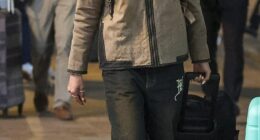Mitochondrial DNA mutations can cause devastating disease in one in 5000 babies born around the world.
The mutations are passed on from mother to child – while male children can be affected, adult males do not pass it on.

Harmful mutations in mitochondrial DNA can result in reduced availability of energy, particularly affecting tissues that have high energy demands – for example, the heart, muscle and brain.

The nuclear genome contains all the genes essential for a person’s individual characteristics, such as, hair colour and height, so the child carried from this procedure thus inherits those characteristics from its birth parents, but without the mitochondrial DNA mutation, due to the use of the donor egg.
The trial saw eight babies, including a pair of identical twins, born to seven women.
All the babies showed either no signs of mitochondrial DNA mutation or very low levels that were unlikely to result in disease.
“After years of uncertainty this treatment gave us hope – and then it gave us our baby,” one of the mothers said.
“We look at them now, full of life and possibility, and we’re overwhelmed with gratitude. Science gave us a chance.”
Australia hopes to follow suit
About 60 babies born in Australia every year will develop mitochondrial disease, including disabling and potentially fatal conditions.
And about 120,000 Australians carry disease-causing DNA variants that put them at risk of passing it on.
The passage of Maeve’s Law in March 2022 allowed the introduction of mitochondrial donation in Australia, and the Medical Research Future Fund in 2023 provided $15 million towards a pilot program.
The mitoHOPE Program’s clinical trial will be the first of its kind in Australia to determine the safety and efficacy of mitochondrial donation.
According to Professor John Carroll, director of Monash’s Biomedicine Discovery Institute and head of mitoHOPE, the UK studies should give Australia momentum to follow suit.
“We hope to soon obtain our first licence from the NHMRC’s Embryo Research Licensing Committee, so that we can begin training our IVF embryologists in the procedure using donated eggs,” Carroll said.
“The birth of eight babies with a greatly reduced risk of developing mitochondrial DNA disease provides hope for those waiting to access mitochondrial donation and shines new light on the path toward introducing mitochondrial donation in Australia.
“The findings published give grounds for optimism. I look forward to continuing this work at Monash University and I hope that the new treatment can soon become available to Australian families affected by these devastating diseases.”
Federal Health Minister Mark Butler said the government was proud to support the research.






